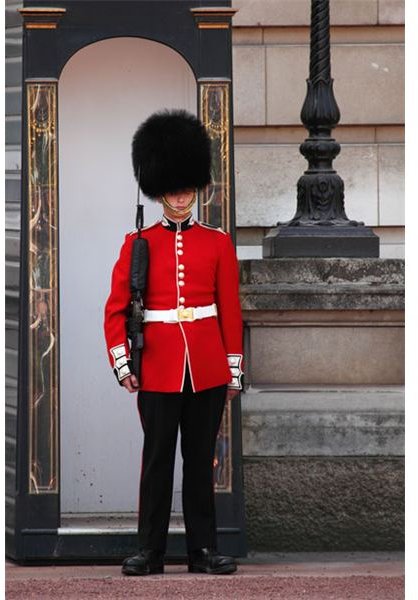The United Kingdom: Ten Facts About its History, Government, and Culture
Introduction
The United Kingdom is comprised of four countries in Europe and these 10 facts explain how the U.K. was formed, its role in the Industrial Revolution and how its government operates. The U.K. is a very diverse nation, which is evident in a review of some of the facts about the U.K.’s culture.
Facts about the History of the United Kingdom
1. The Treaty of Union in 1707 combined the kingdoms of Scotland and England, which included Wales, and led to the formation of the United Kingdom of Great Britain. The Kingdom of Ireland was added in 1801 and the country became the United Kingdom of Great Britain and Ireland. In 1927, Ireland seceded to form its own independent nation, but a day later Northern Ireland rejoined the United Kingdom. Since then, the official name of the U.K. has been the United Kingdom of Great Britain and Northern Ireland, although some simply refer to it as Britain.
2. Britain’s defeat in the American War of Independence, also known as the Revolutionary War in the United States, ended with the Treaty of Paris in 1783 and Britain formally recognizing the independence of its 13 North American colonies. Britain also ceded the colonies of West Florida and East Florida to the United States.
3. The Industrial Revolution began in the U.K. in the 18th century with the development of the cotton mill. As the U.K. transitioned to an economy that relied on machines to manufacture goods, it became more urbanized and less dependent on agriculture. British colonies helped stimulate the growth of the U.K. into a world power by not only supplying raw materials, but by providing a market for the goods.
Facts about the Government of the United Kingdom
4. The U.K. does not have a written constitution. It has a constitutional monarchy, meaning a monarch has the ultimate authority over the government, although the monarch generally follows the laws of parliament or abides by British tradition. The monarch also appoints the prime minister, the leader of the government. Queen Elizabeth II has been the monarch since 1952 and the next in line for the throne is her son, Charles, Prince of Wales. She appointed David Cameron prime minister in 2010.
5. Buckingham Palace is the official London residence and office of the British monarch. The 775-room palace is in the central London borough of Westminster. The monarch also occasionally resides in Windsor Castle in Berkshire County, which is the largest and oldest occupied castle in the world and has been a royal residence for over 900 years. The Queen’s Guard and the Queen’s Life Guard are charged with guarding the royal residences and the ceremonial Changing of the Guard is a popular tourist attraction.
6. 10 Downing Street is the office and personal residence of the British prime minister, as well as the meeting place of the Cabinet. It is one of the most recognizable addresses in the world and is the equivalent of the White House in the United States.
Culture of the United Kingdom
7. The primary languages spoken in the U.K. are English, Welsh and a Scottish dialect of Gaelic. The British English that is spoken in the U.K. does not exactly the same as American English or Australian English as it has its own dialect and terminology. Even within Britain, English can sound different, depending on where the speaker is from.
8. Nearly one-third of the population of the U.K. lives in the urban and suburban areas of southeast England. Over 7.5 million of the U.K.’s 60 million residents live in the capital city of London, which is the largest city in Europe.
9. While the U.K. is known for dishes such as fish and chips, the growing ethnic diversity in the U.K. has led to the availability of a wide variety of ethnic foods. Visitors to the U.K. will find cuisine such as Mexican, Chinese, Italian and Indian.
10. In the 1960s, a trend in rock and roll called the “British Invasion” saw many bands from the U.K. have a tremendous influence on rock music. Two of those bands - the Beatles and the Rolling Stones - became two of the most famous bands in rock history and their music is still popular today.
Summary
The United Kingdom is unique, as these 10 facts show, combining the interests and culture of four formerly independent countries. Tradition is important in the U.K., which is evident by the continued presence of the British monarchy. However, the U.K. has proven to be very progressive, in eras ranging from the Industrial Revolution to the heyday of rock and roll. From the Royal Family to the Beatles, from cotton mills to the Rolling Stones, the U.K. has proven to be one of the world’s most influential and interesting countries.
References
Image Credits:
1. Public Domain Pictures: https://www.publicdomainpictures.net/view-image.php?image=7785&picture=buckingham-palace-guard
References:
1. Oxfam: Cool Planet: United Kingdom: https://www.oxfam.org.uk/coolplanet/kidsweb/world/uk/index.htm
2. Official Website of the British Monarchy: https://www.royal.gov.uk/Home.aspx
3. National Geographic: United Kingdom Facts: https://travel.nationalgeographic.com/travel/countries/united-kingdom-facts/
